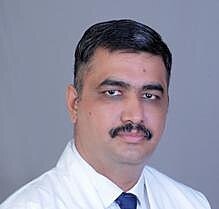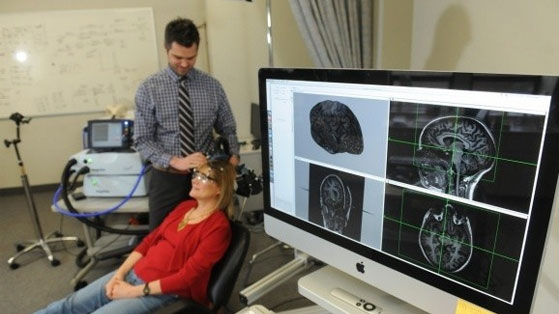
M.B.B.S., L.T.M.M.C., G.H., D.N.B. (Neurosurgery)
Since August 2015, I have been serving as a Consultant Neurosurgeon and Spine Surgeon at Indraprastha Apollo Hospitals, New Delhi. In June 2022, I transitioned to Apollo Hospitals Navi Mumbai, and in June 2024, I rejoined Indraprastha Apollo Hospitals. Additionally, I hold the position of Honorary Neurosurgeon at Tirath Ram Shah Charitable Hospitals, Delhi. In the past, I have had the honor of being associated with Yatharth Super Speciality Hospitals, Chikitsa Noida Medical Center, Apollo Hospitals Noida, and Inlaks Hospitals, Mumbai.

Neurological rehabilitation is designed to help treat patients with nervous system or neurological diseases. Rehabilitation aims to increase function, reduce debilitating symptoms, and improve a patient’s quality of life. The types of rehabilitation treatments recommended depend on the areas of the body affected by the neurological condition.
Any patient with a neurological condition may be referred for rehabilitation through a prescription or order provided by a doctor.
Symptoms that may prompt the need for neurological rehabilitation include:
While a patient will still have a primary care medical team, the rehabilitation team provides additional treatments and therapies. The rehabilitation team consists of highly skilled professionals dedicated to each patient’s needs. The most appropriate treatment plan for each patient is developed after an evaluation. Neurological rehabilitation may include some of the following team members:
M.B.B.S., L.T.M.M.C., G.H., D.N.B (Neurosurgery)
My Neurosurgical Training in Chennai (2003-2008) involved working in the prestigious Neurosurgical unit at Voluntary Health Services Hospital. I had the honor of starting with and being the last student of Prof. B. Ramamurthi, the first Neurosurgeon of India, who established this institute after superannuation from Madras Medical College. Thereafter, I worked under Dr. Chandrashekhar Deopujari and Dr. Uday Andar at Bai Jerbai Wadia Hospital for Children, Mumbai (2009 – 2011).
Dr. Amit Kapoor
Indraprastha Apollo Hospital
Tirath Ram Shah Hospital
Happy Healing Polyclinic
Apollo Hospital, Noida
dramitkapoor@yahoo.com
+91-8448449837
©2022 Dr. Amit Kapoor, All Right Reserved.
